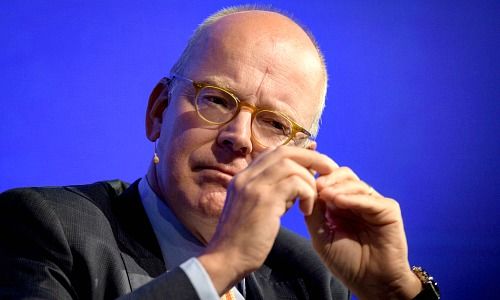UBS: Martin Blessing's Priorities
At UBS' flagship private bank, Martin Blessing inherits a bank with countless open issues. The German banker is undoubtedly qualified to master them, but is he the right man to do so? finews.asia takes a look.
1. Schmoozing the Network
Private banking is a play on who you know: winning business from the wealthy, hobnobbing with businesspeople to gauge sentiment and rubbing shoulders within the industry with a view to future acquisitions. Julius Baer's changing of the guard in Asia, replacing veteran Thomas Meier with Credit Suisse banker Jimmy Lee last year, is emblematic of an attempt to tap new networks. Juerg Zeltner is a perennial survivor at UBS, but after nearly nine years at the top of UBS’ private bank, his personal network was largely leached.
Martin Blessing’s history at Commerzbank gives him stellar connections to Germany’s Mittelstand entrepreneurs, but the German lender is also known as a corporate lender in Brazil and Asia, for example. Put simply, Blessing brings a heftier network to the table than Zeltner, who spent a good part of his time engaged in bitter turf wars instead of schmoozing with the great and the good.
2. Propping Up Profits
UBS’ wealth management supertanker delivers fat profits, quarter for quarter. But Switzerland’s biggest bank isn’t immune to the whammies facing the wider industry: margins are sinking, commissions are down because clients are nervous about jumping back into stock and bond markets, spending on regulation has soared, and more nimble digital players threaten to eat the traditional industry’s lunch.
Not surprising perhaps that Zeltner one year ago said UBS didn’t actually want more net new money, because he wasn’t sure how to squeeze a profit out of it. And so be it: UBS has regularly been surpassed in new money growth – a closely-watched indicator for future revenue – by the more aggressive Julius Baer and Credit Suisse.
Private banking profitability will probably never reach the dreamy levels outlined in its 2012 restructuring, but UBS needs to either keep slashing spending, lift profitability per client, or bolster volume. Should it manage to do so, it has the basis for further growth with a newly-unified platform.
3. Digitization
The 54-year-old Blessing may not be right out of Silicon Valley, but he nevertheless has a lot to offer: as Commerzbank boss, he oversaw the positioning of subsidiaries Comdirect, an online bank, and Poland’s M-Bank, which is seen as a leader in European digital finance.
- Page 1 of 3
- Next >>




























